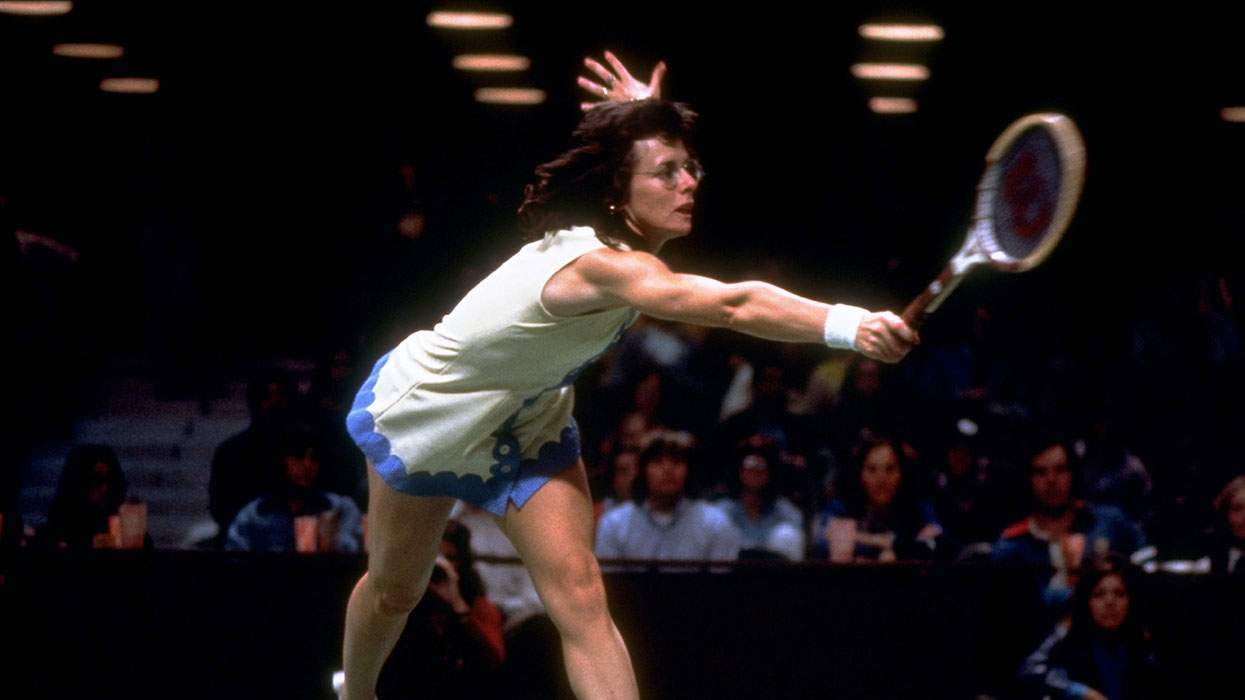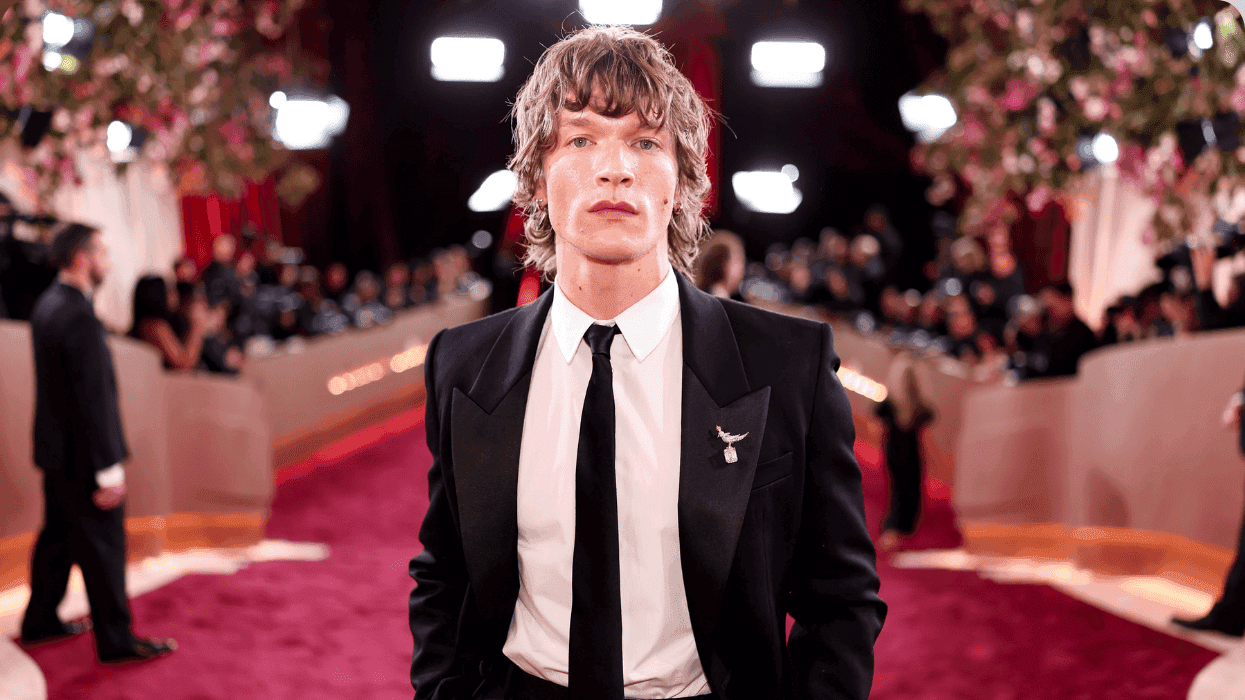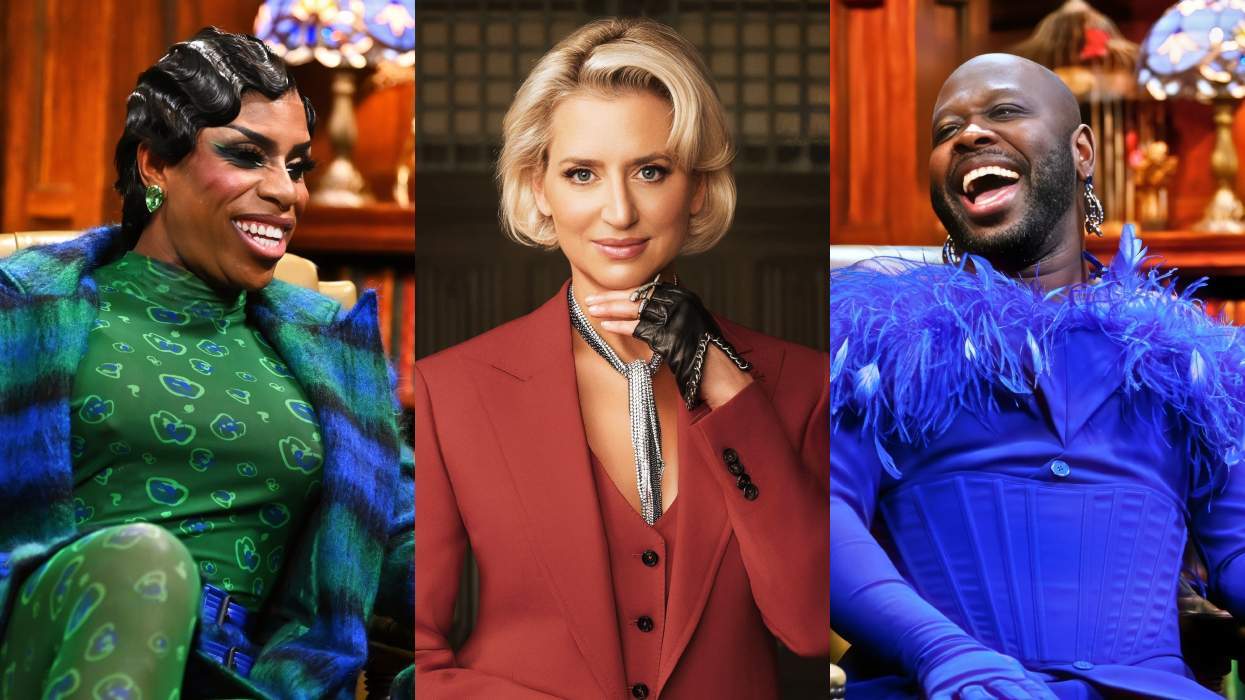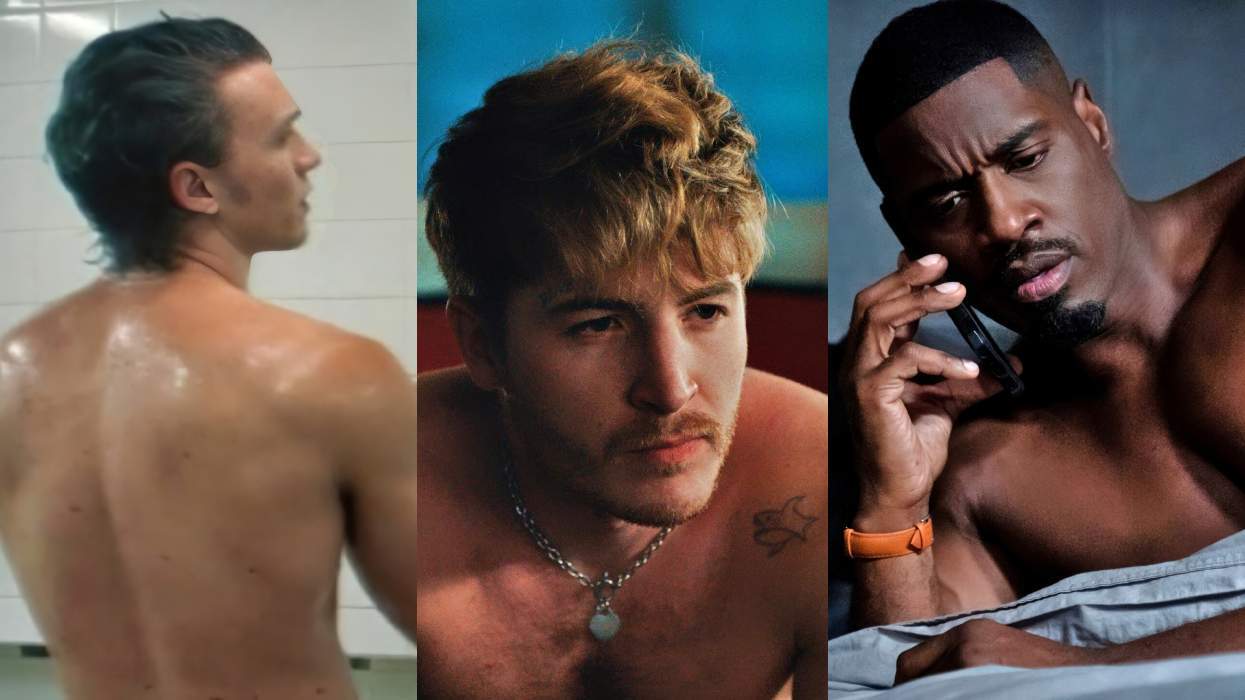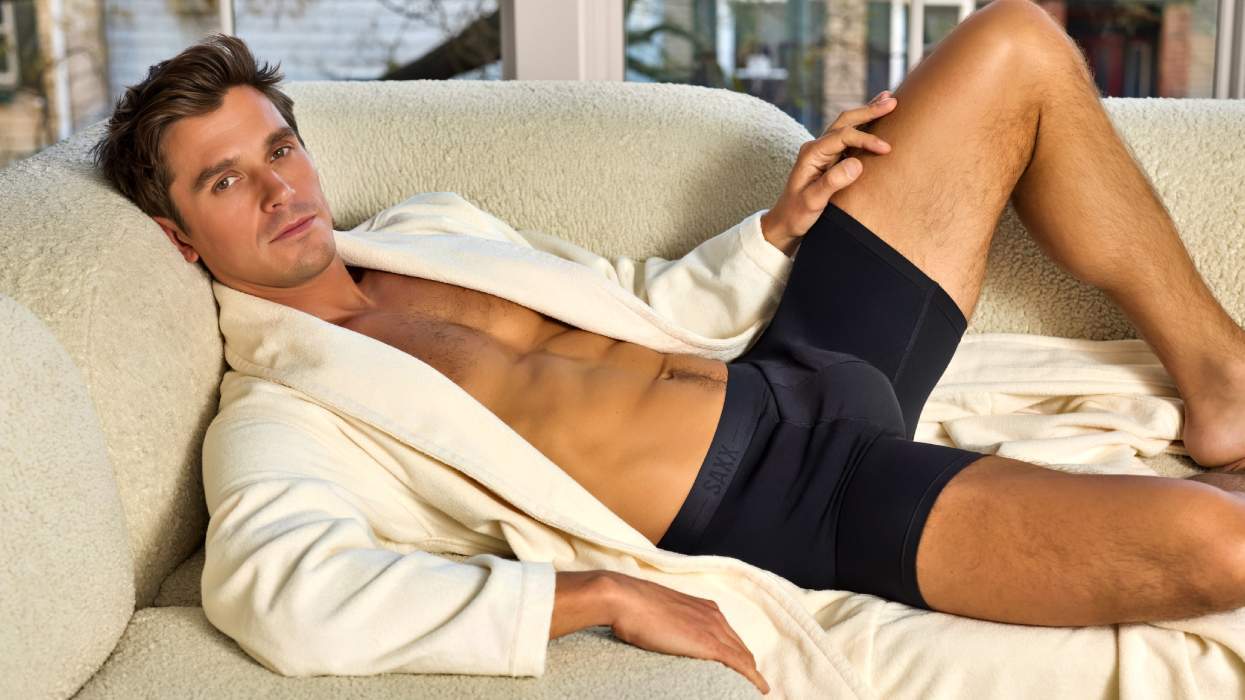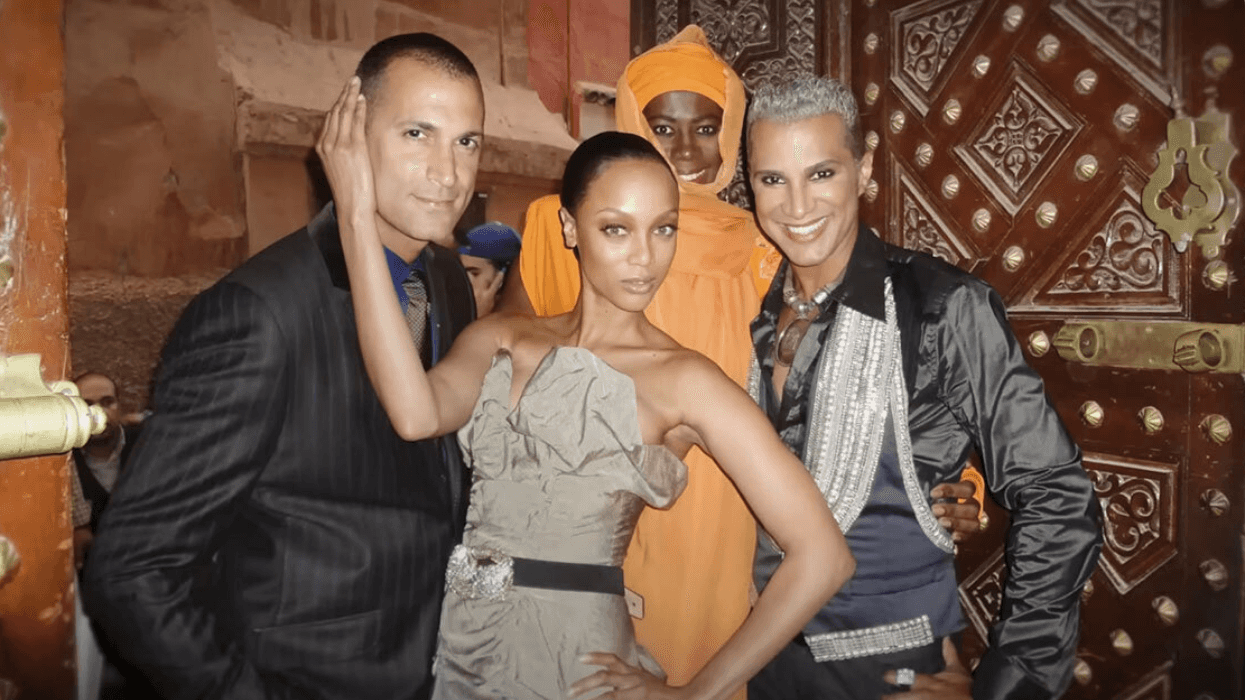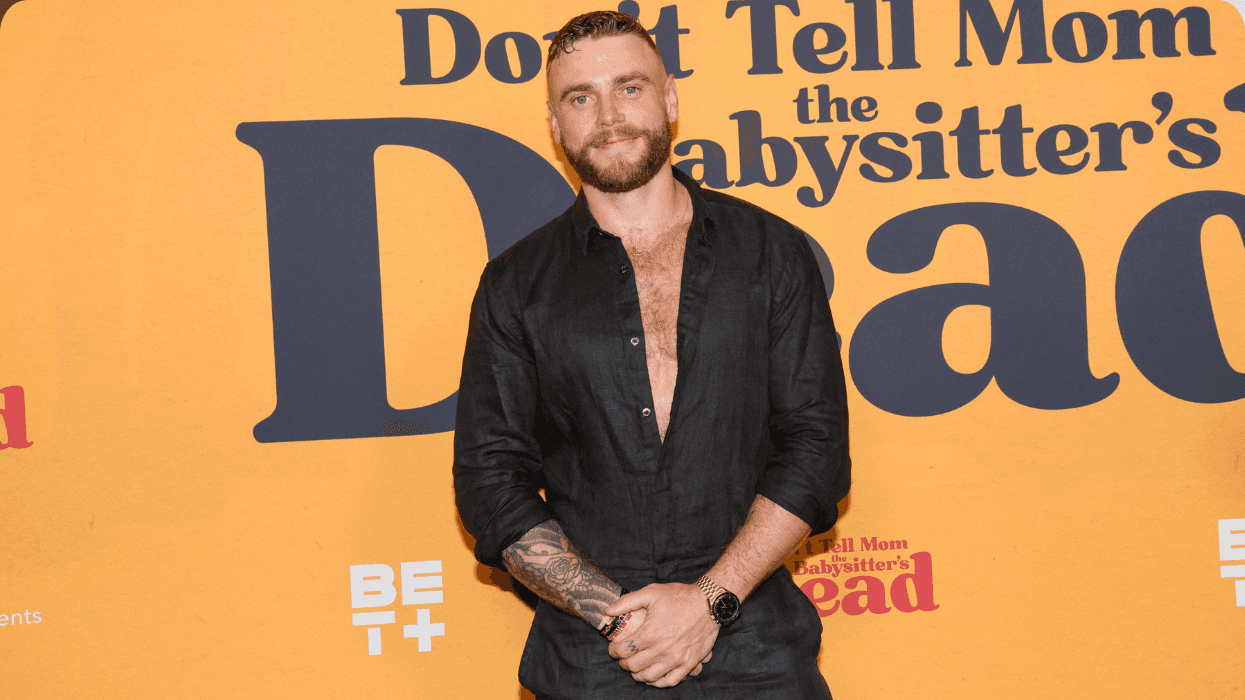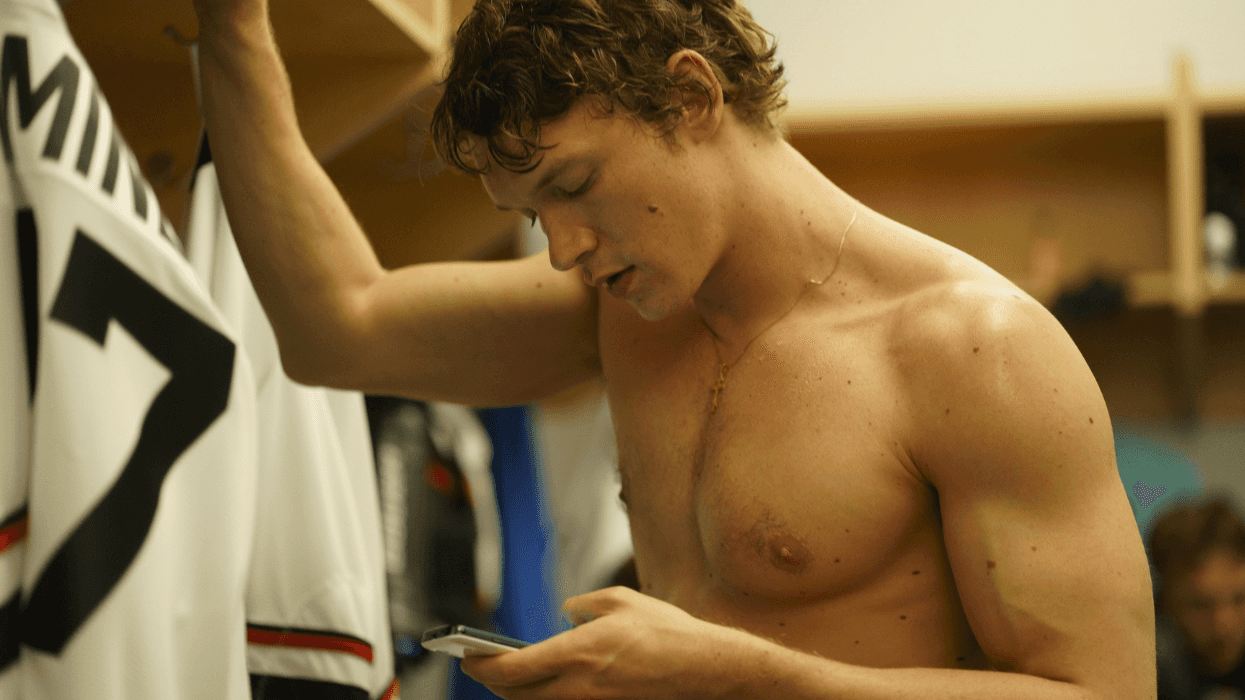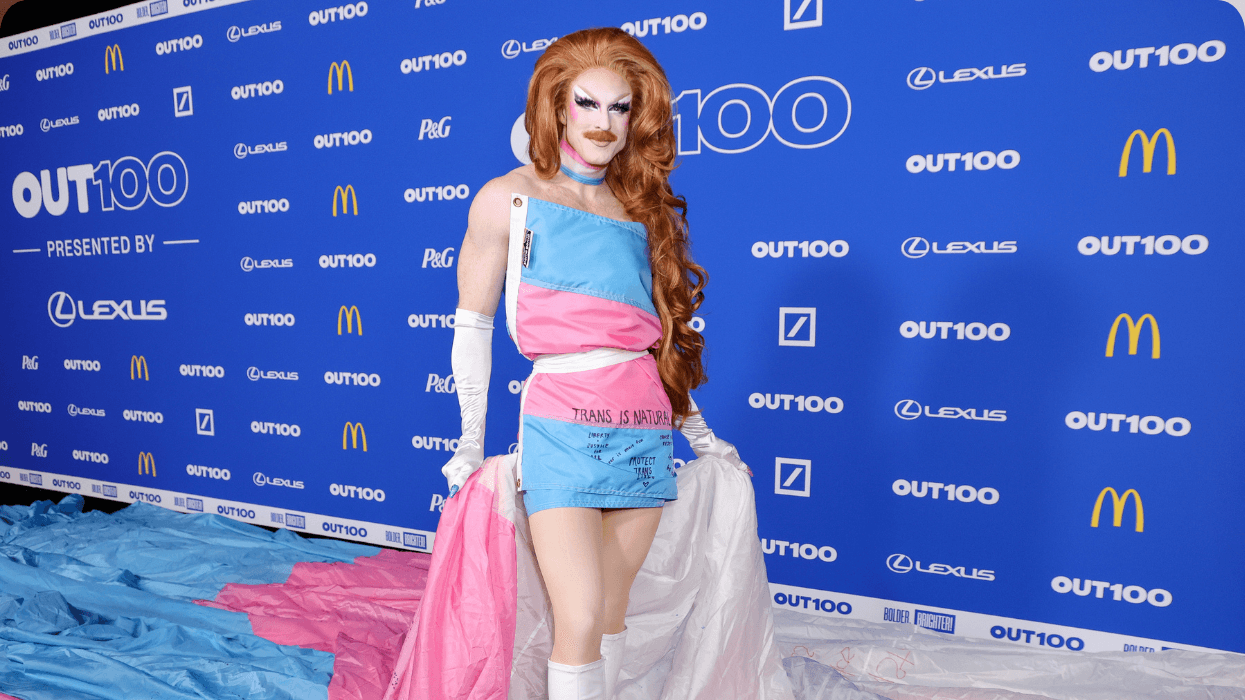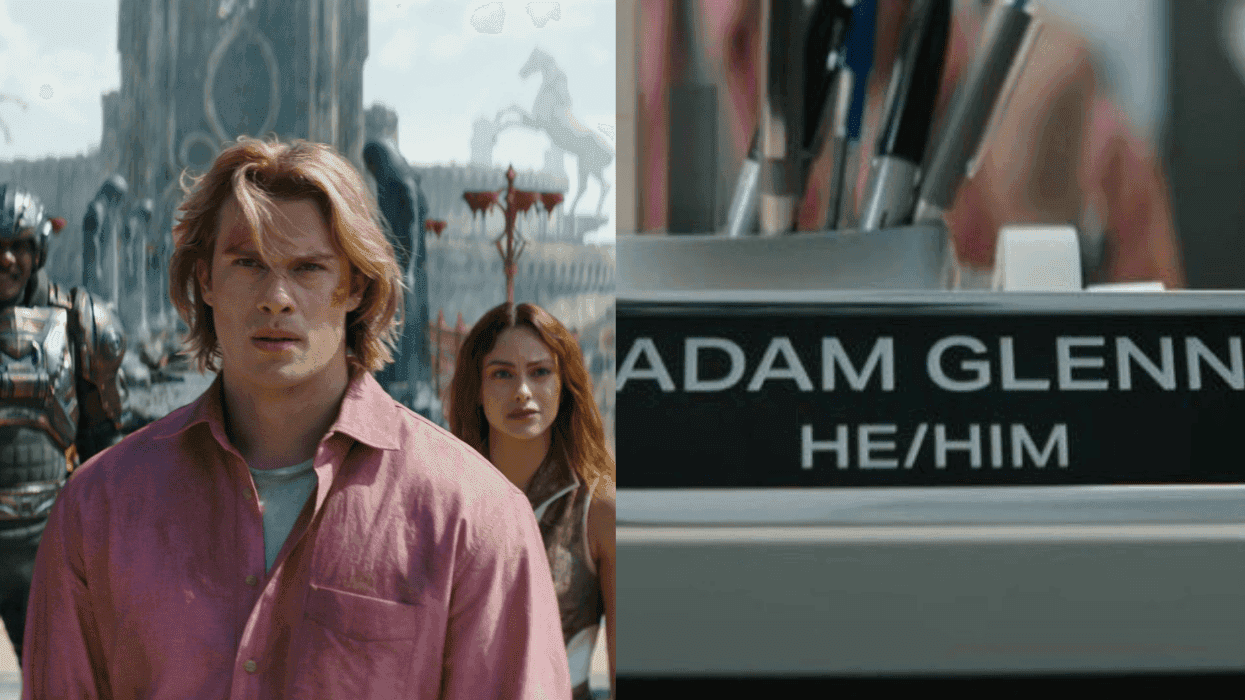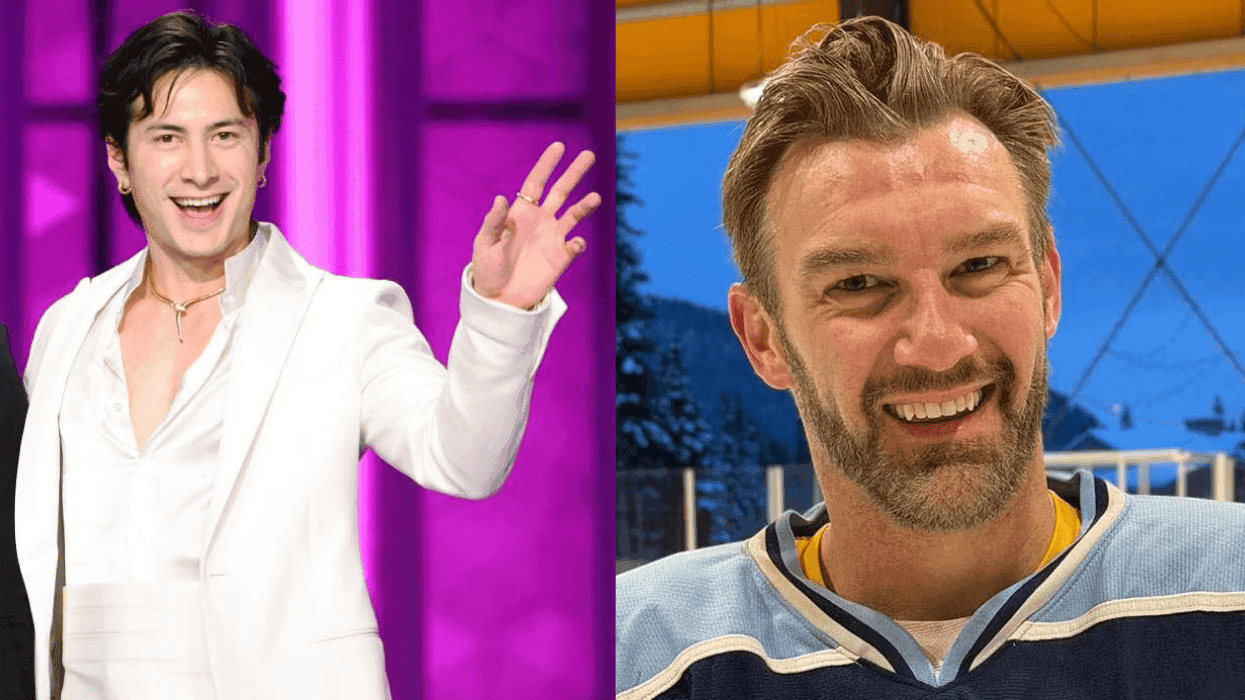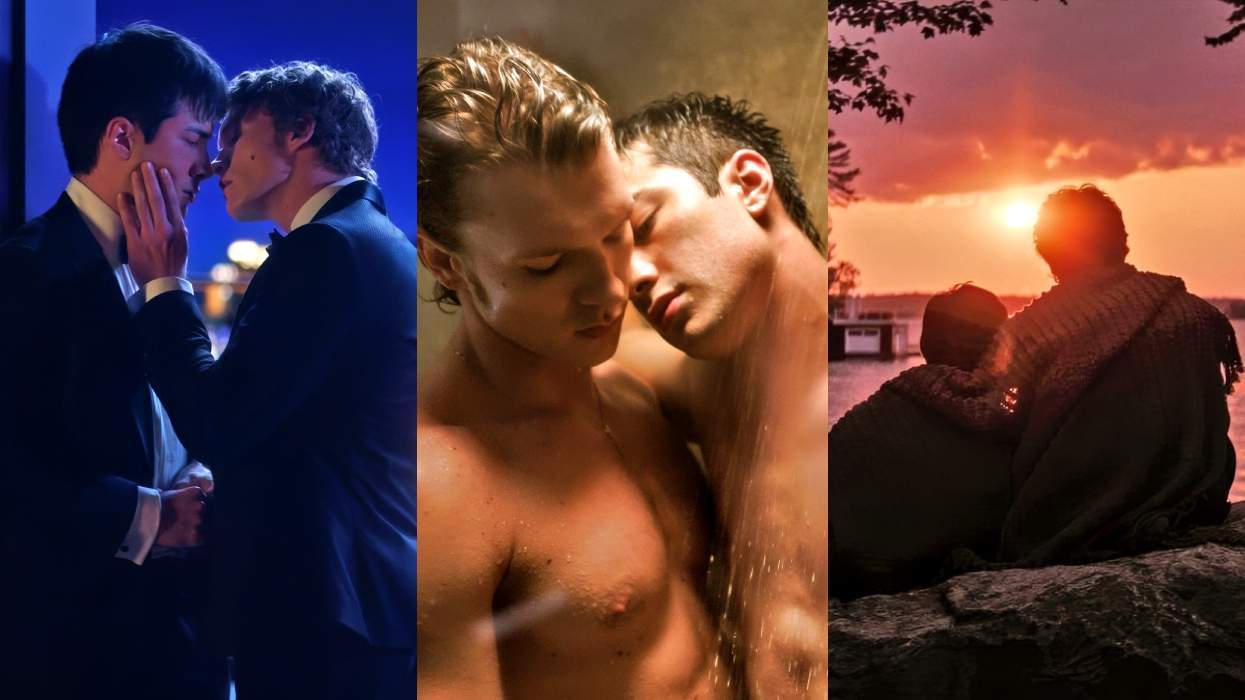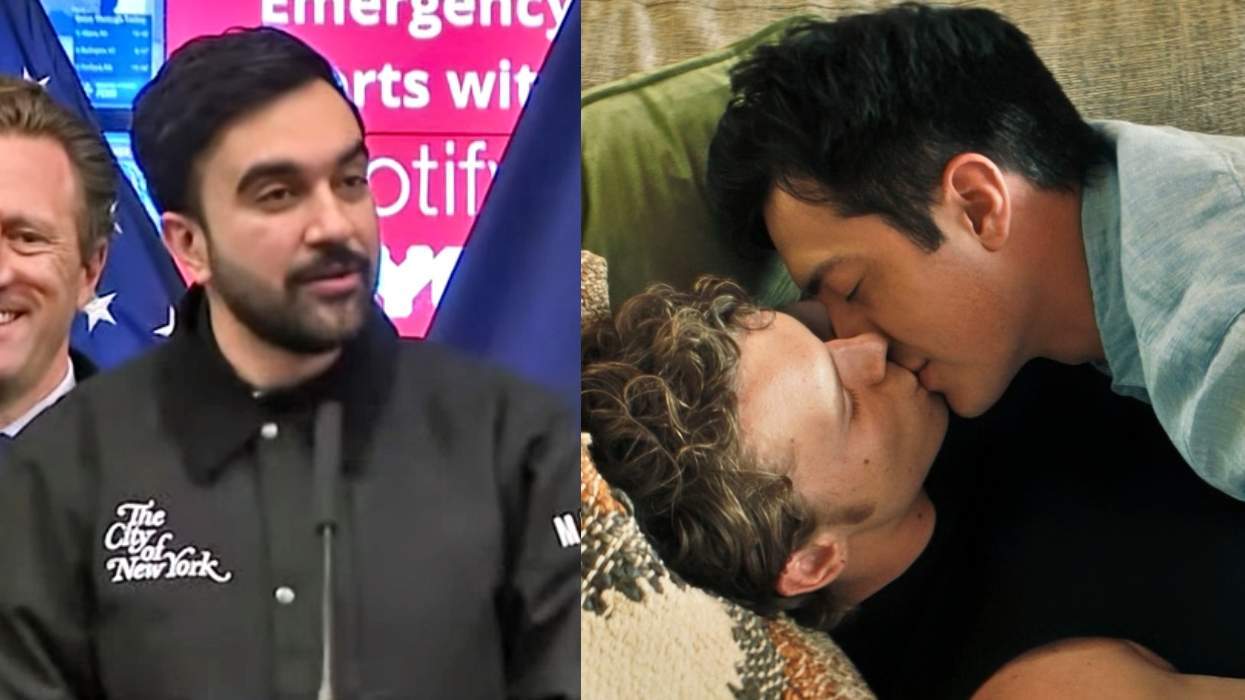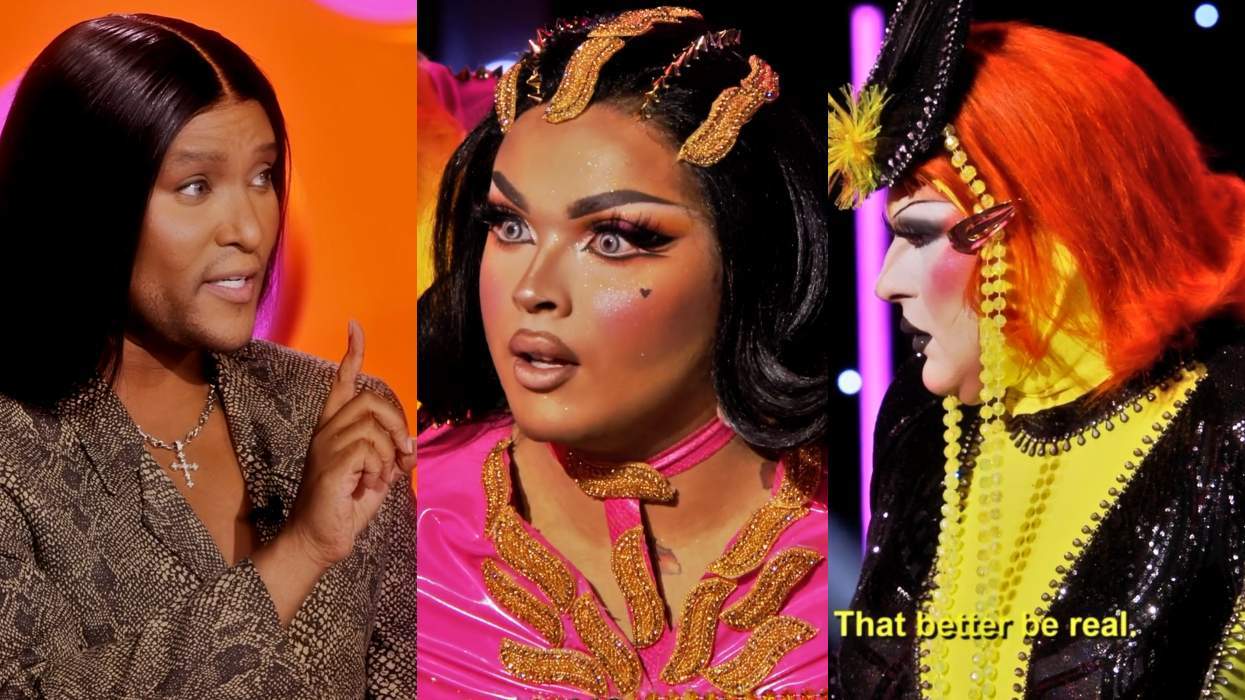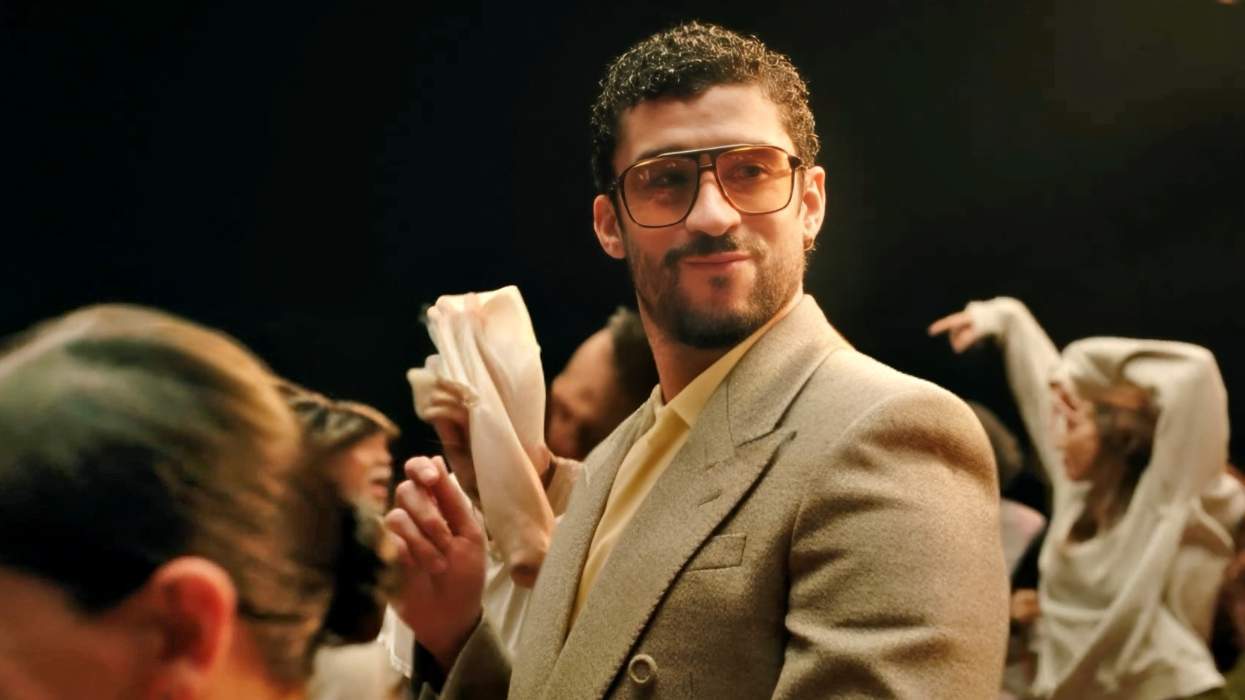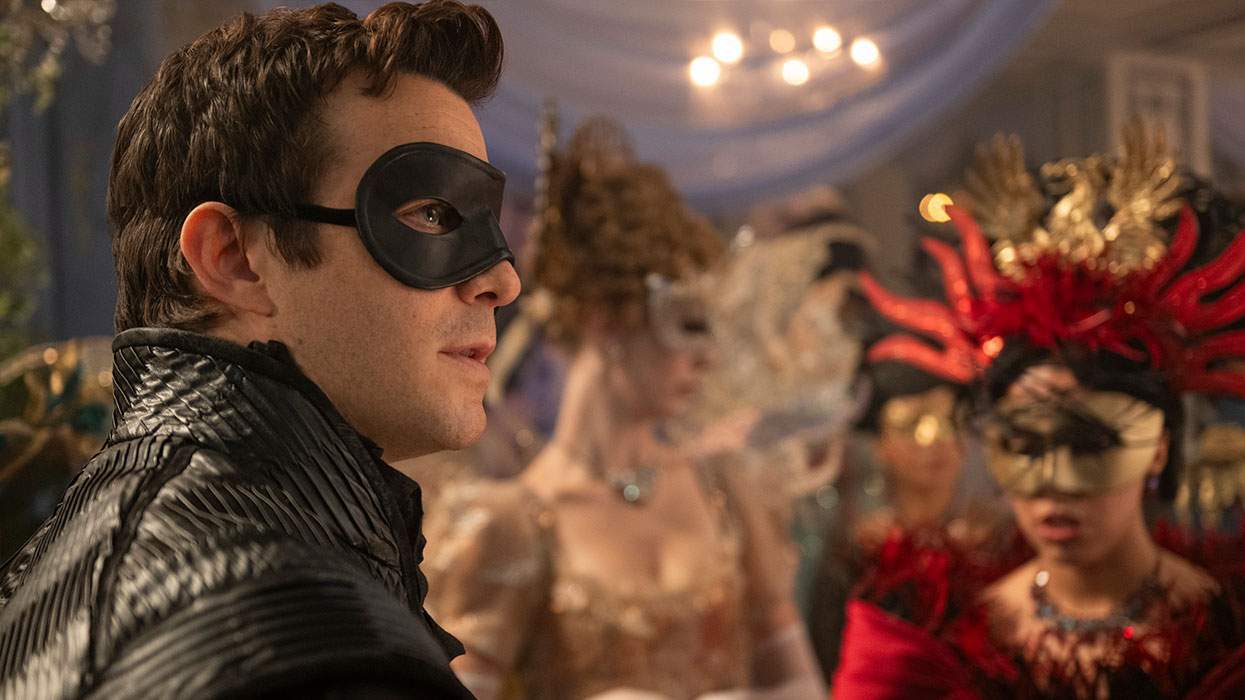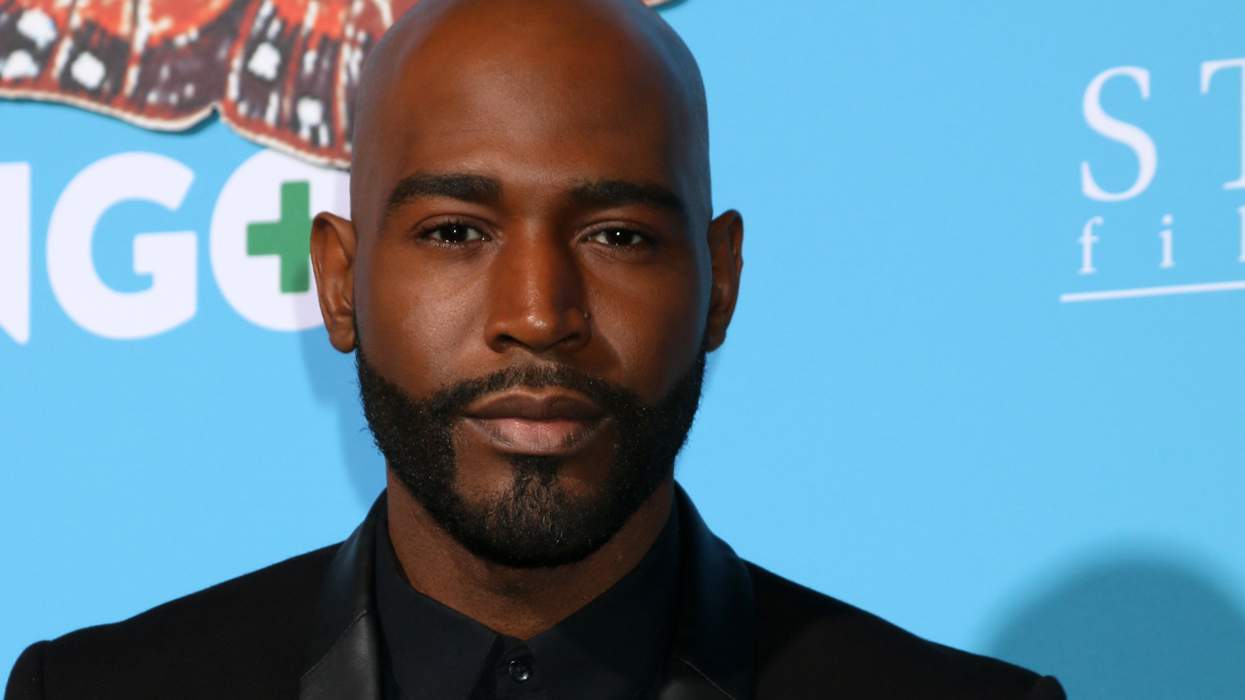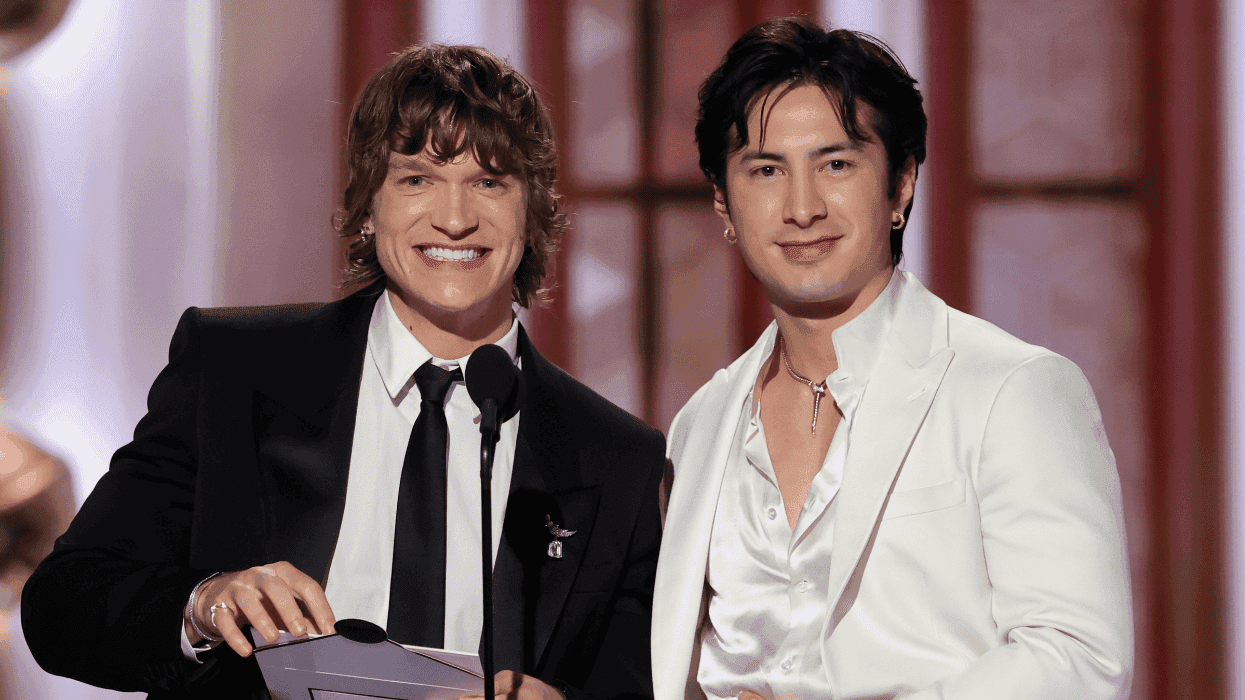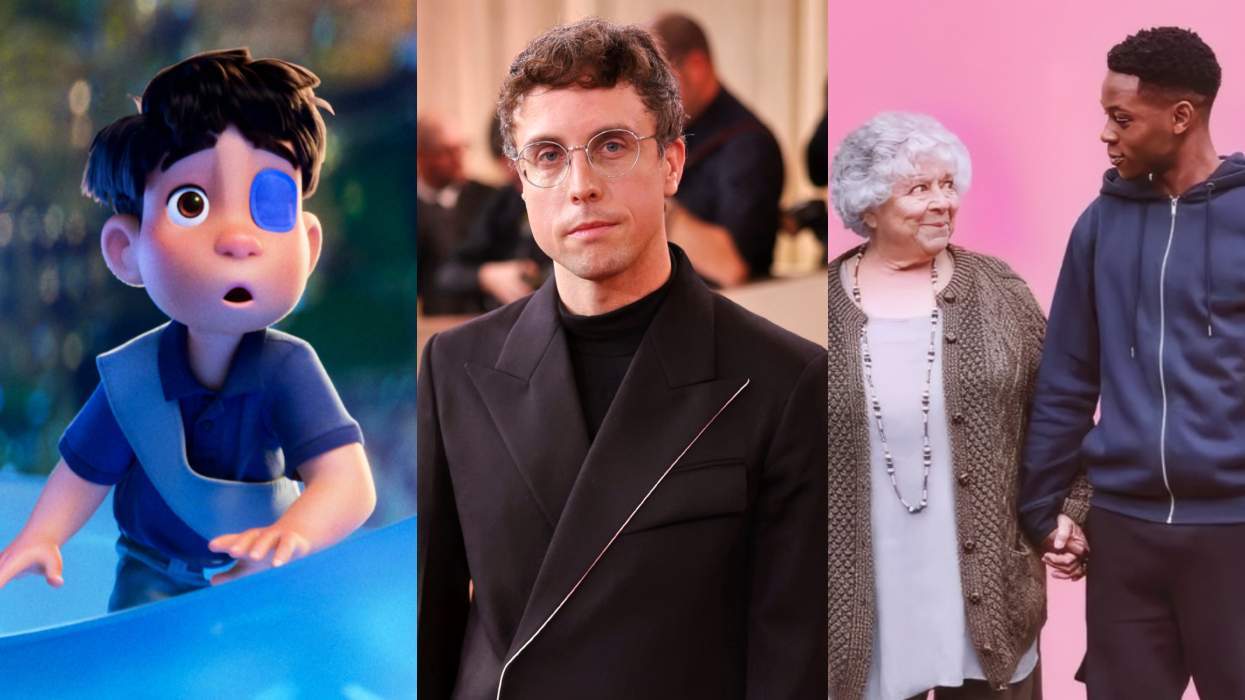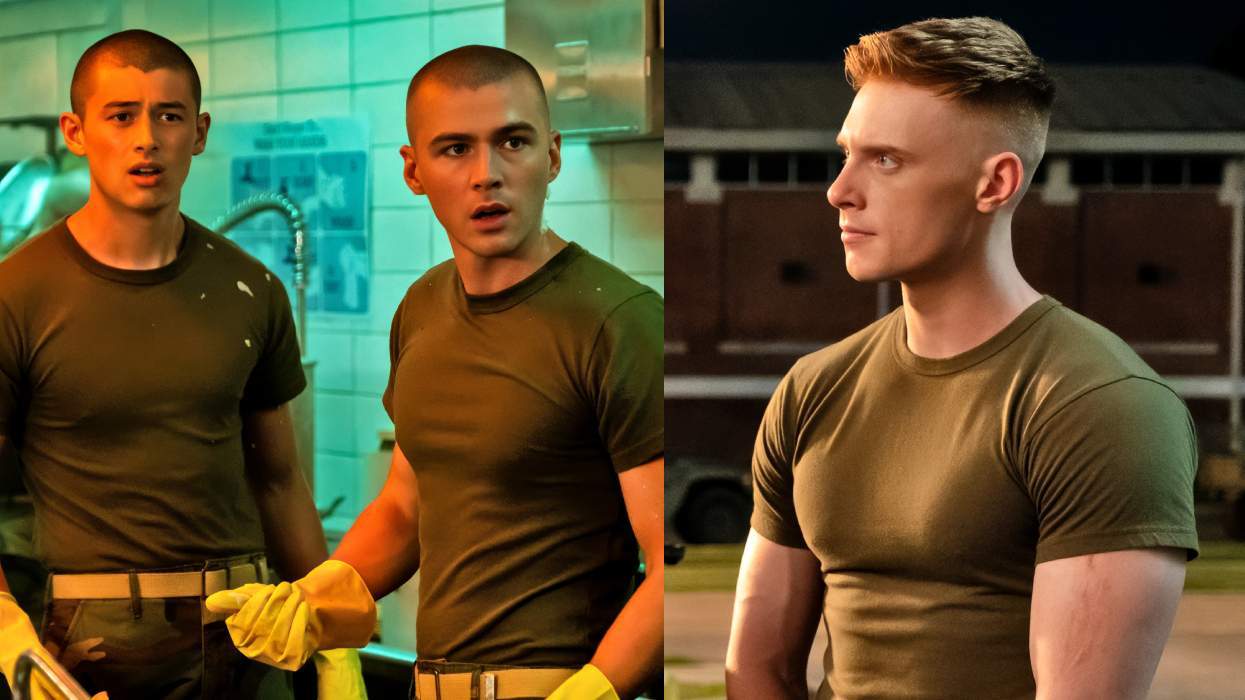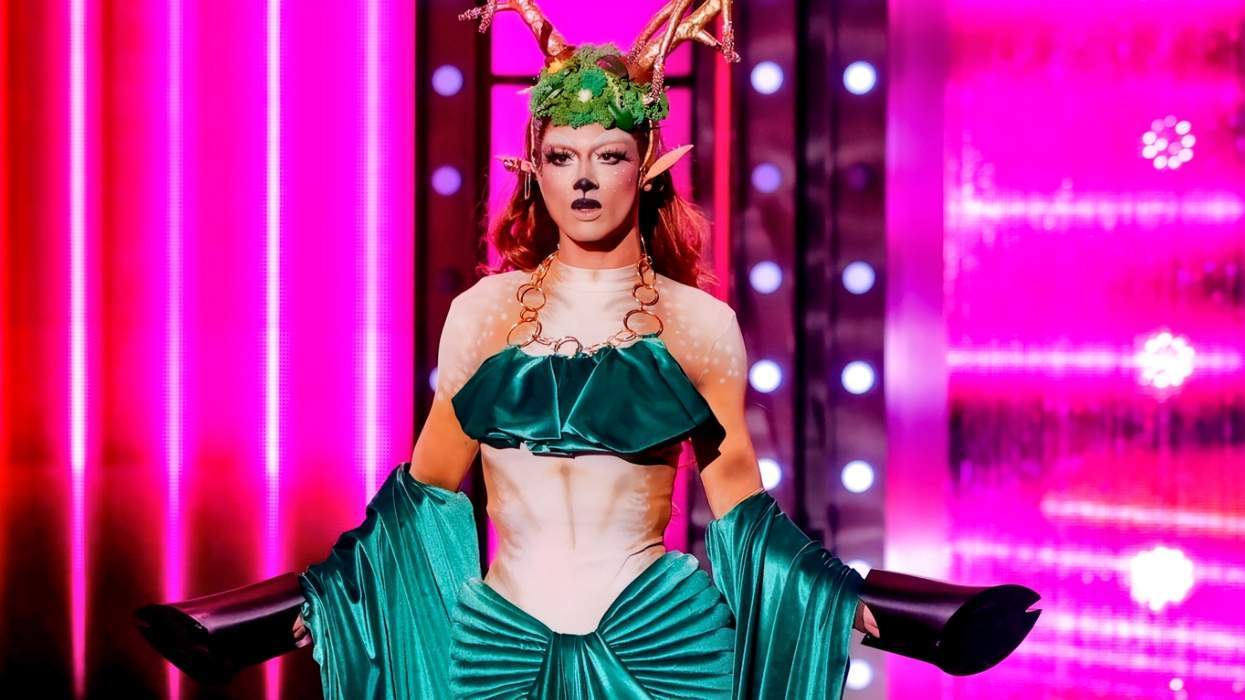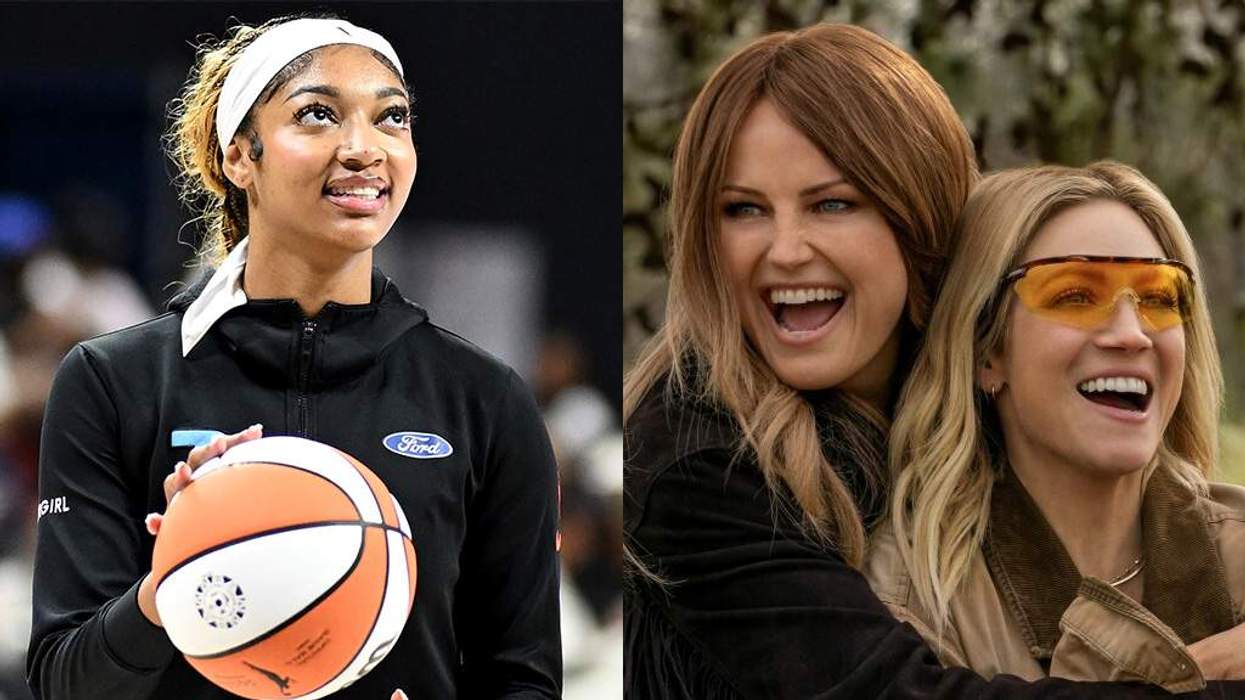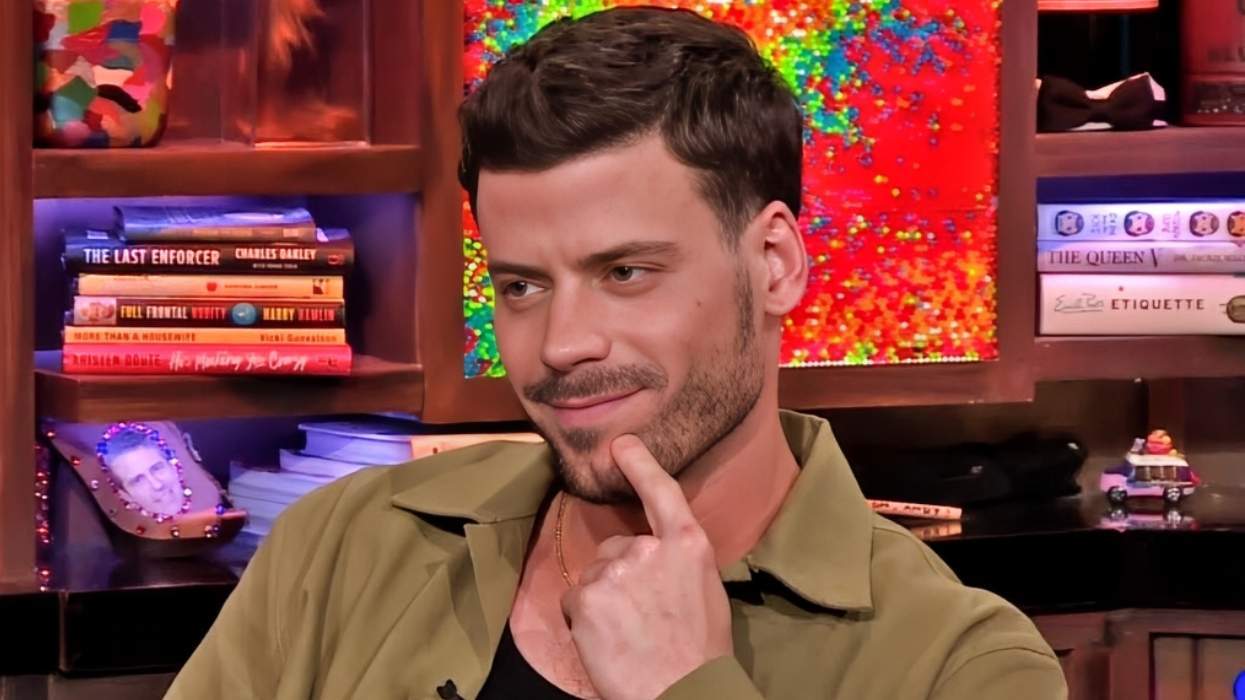A simple matter of budget ended up making one of the most revolutionary queer stories on television. Ryan O'Connell, Will & Grace writer and author of the memoir I'm Special: And Other Lies We Tell Ourselves, was not attached to star in the show he'd write and create when he first pitched it. But O'Connell, who is gay and living with cerebral palsy, ended up being the cheapest option to star in the show and, thus, Special, which just dropped on Netflix, was born: a show created, written by, and starring a queer person living with a disability based on his own life story.
Disability representation is still pretty abysmal on television. According to GLAAD, though over 13% of Americans are living with a disability, only 2.1% of characters on primetime broadcast shows live with a disability -- 18 characters in all. That's actually the highest percentage GLAAD has recorded in its nine years of tracking, which hopefully points to an upward trend. But there's still so far to go, and Special not only a pushes the meter in the right direction, it also addresses how queerness intersects..
It's a point that people like deaf activist and model Nyle DiMarco has made again and again: there is not enough disabled representation when it comes to everything from children's shows to the Marvel Cinematic Universe. In October, DiMarco posted an ad from the CW on his Twitter that touted the network's commitment to racial, sexual, gender, and ethnic diversity but, as DiMarco pointed out, made no mention of disability representation.
Special doesn't only put queer people on screen, it centers their interior lives and deals with a host of thorny, complicated issues -- all while eliciting big laughs. In the show, O'Connell plays Ryan Kayes, a 20-something gay guy living with cerebral palsy who gets a job working at a millennial-centered site called EggWoke. (O'Connell himself used to write for Thought Catalog, so take from that what you will.)
In only eight, 15-minute episodes, a first for Netflix, the show tackles internalized ableism, queer disabled sexuality, sex work, gay monogamy, the exploitation of marginalized stories, Instagays, and more. Out caught up with O'Connell ahead of the show's debut to discuss the disability spectrum, why pool party scenes feel so universal, and whether he feels pressure to represent the entire disabled community in one show.
Spoiler alert: Several plot points of Netflix's Special are discussed in this interview.
Very early in the series, you have a scene talking to your trainer about being on Grindr. Did you feel like you waited a longer time to go on apps than other gay men?
I definitely looked at the apps. I have had a boyfriend for four years and I'm still on the apps, honey, hello, welcome to the future. But back in my single days, I remember I was on Grindr and I was on Scruff, but I would rarely meet up with someone because I just had anxiety. Are they going to notice I have a limp? Am I doing false advertising? It was a tricky thing to navigate. Because I felt like my disability wasn't pronounced enough to make a difference. I felt like warning them about a limp was overkill, but I didn't want anyone to feel like they had been duped. I was on the apps, but it would take a bottle of wine for me to invite someone over.
I really loved a conversation that your character has on the show about being disabled, but not being "very disabled," like, let's say, someone who operates with a wheelchair. Obviously, your show is a major step forward for disability representation on TV, but do you feel pressure for the show to represent a large swath of the disabled community?
It's a lot of pressure because there has not been that much representation of disability, let alone form actual disabled people. I do know intellectually that it's truly impossible for my show to speak for an entire population of people. It just can't happen. So I feel like I have to write something that's authentic to my experiences. And I feel like as you get more specificity, you get more universal. Hopefully Special opens the door for more disabled voices to tell their stories. I can't speak for an entire population of people.
I don't know if you've watched Shrill on Hulu yet, but just like Special, there's a pool scene where the main character is confronted with their own body. What do you think it is about a pool setting that can be so emotionally fraught?
Well, I think the setting of the pool party is very relatable. I feel like everyone at some point in their lives has been invited to a pool party and has felt anxiety over taking off their clothes in front of a group of strangers, or even friends. I've spent a lot of my life feeling very self conscious about my body, not feeling good enough. All of the feelings Ryan [has] in the pool party episode are things that you relate to. I don't know if i've ever been invited to a gay pool party, [but the idea is] so deeply triggering. I think I'd feel self conscious, especially one full of Instagays because they have these conventional, beautiful bodies and that's definitely not mine. You can't help but compare yourself. "Compare and despair," that's what they say. It's hard. The relationship to the body is always evolving. It really depends on the day. Some days I'm like, :I love my body! I'm body positive!" And other days I'm like, "I'm literally a goblin."
Watching your show coincided with me watching Shrill and then there was also an episode on Comedy Central's The Other Two about Instagays. It seems like Instagays are having their cultural send-up moment.
Totally. There's just a lot to mine there. Let's be honest. It's just a very very funny subculture of people. I don't know any Instagays personally. I don't know what they do for a living. God bless, but yeah, The Other Two is so brilliant. I love that show. It's so smart and so funny.
Your character also deals with a season-long arc of internalized ableism and keeps his disability a secret. You lived that experience, then wrote about it in your memoir and now for your show. What is it like to live that experience but then translate it to the screen and have to access those feelings again?
I really enjoyed it actually. Because I think when I wrote the book, I was so unevolved in my feelings about my disability and the fact that I had been closeted about it for the past six years. While it was cathartic to write about it in my book, I felt I had only scratched the surface and had only begun to understand what I had done to myself. Talking about it in the show was an amazing opportunity because I've learned so much about myself and when I was closeted and how it fucked me up on such a deep level.
I didn't even know about internalized ableism when I wrote the book. And if I knew what it was, I wouldn't even know that I suffered from it. I was beginning to unpack what being closeted about disability had done to me, I was just not there yet. So doing it in the show was just amazing because I feel like I have grown so much and I understand things much better than I did back then.
In the show, your character goes on a date with another disabled person and you kinda exit stage right. Did you ever find that ableism had stopped you from dating other disabled people?
Yeah, that actually happened to me in high school. There was this really cute deaf gay guy in my high school and he asked me out on Myspace or something. I remember being so grossed out like, "Who does he think he is that he can ask me out on a date and I'd say yes?" Meanwhile, I'm drooling on myself and limping away like "How dare you!?" Like, "I date able-bodied people only please!"
I thought I was justified in feeling that way. I had no idea how fucked up I was in feeling that way. I think it's so fascinating and specific to the disabled community. But I think it's specific outside of the disabled community in a larger way with gay men. Sometimes you have internalized homophobia and sometimes someone reminds you of the things you don't like about yourself and it causes you to reject them.
There's a conversation in Hollywood right now about people from marginalized communities being able to play themselves on screen. Was it always the plan for you that you would star in Special?
No, never. There was no discussion. When we first went out to the pitch, I was not attached to star. There was no one attached to star. We would talk about "Who do we get to play me?" and initially we went out with the pitch and we went to Stage 13, a digital branch within Warner Bros., but out of financial necessity, it was like, "We have no money, Ryan is very cheap, so welcome to Hollywood, honey!" So I was forced to play myself.
I was so scared of it. I never wanted to act, but now having done it, I'm so glad and I can't imagine anyone else doing it. Looking back on it, I like performing. I was in high school plays and middle school, but I feel like I never gave myself to really want that. I was ashamed about it, like "I'm just a writer, I'm behind the scenes in Studio City in a writer's room and that's my journey." Now, I feel like I do like to perform and I do like to act and that's OK.
I really loved the plotline where your character has a positive experience with a sex worker. How important was it to show that kind of interaction, between a person living with a disability and someone who does sex work?
Well, that scene was really really important to me. That sex scene was my baby. I have been really frustrated about the lack of representation of gay sex in film and TV. I don't understand why anal sex has not been normalized or depicted for what it is. You get Queer as Folk, really porny, or you don't get anything at all. So I knew when I was starting the season that I wanted to have an honest sex scene and I also had an experience with a sex worker that has been so amazing and I wanted to create a scene that was also pro-sex work.
I also wanted to make sure that Ryan losing his virginity was a nice, tender scene and that I was not traumatized. I felt that that was very important. When something is so common in your life and you don't see it every in TV or film, I get really frustrated. I'm like, "Why is this so groundbreaking? This is something that tons of people experience!"
And the scene also actually featured lube, which gay sex scenes never feature lube!
Yeah, I think that was actually the addition of my gay producer. I think that was my producer being like, "He should definitely have lube!" Lube is obviously a very essential part of gay sex. Can't leave home without it!
So, I've worked in digital media for a while and I see a lot of the same culture at EggWoke [the fictional site where Ryan works in Special] that I've seen in a lot of digital media. They want you to harvest your deepest, darkest parts of yourself for clicks. What advice would you give writers who are living with a disability or marginalized in any way who might be pressured to tell their stories when they're not ready?
My advice is don't do it. I know that when I started writing for the internet, I was in such a hungry, desperate place, that I was like, "I'll write about anything! I have no boundaries! I need a career." And then over time, like six months, I realized that that was not a place to be, emotionally prostituting yourself for two dollars. You have to really create boundaries and realize what you're comfortable with. If you're not ready, you have to say you're not ready to talk about this. Do something else: sell your sperm, do foot fetish work. That has more integrity than exploiting yourself.
You also try to show the awkwardness that can happen when a disabled person and a non-disabled person try to have sex. What advice would give you non-disabled people who want to talk to someone with a disability on apps?
I don't know if I've ever been in that position. I'm trying to think. I didn't really date. I need to say that a million times. I was single for many, many years and I think it was because of scenarios like you just said. I was so fearful of talking about my disability. So, what I will say is through my coming out of the disability closet -- usually no one cares about the things you care about as much as you do. When it comes to getting laid, in my experience, once you're there, no one gives a shit. It's just like, "Let's do it!" So be comfortable and confident and if for whatever reason the person is not receptive, if anyone has some sort on unsavory reaction to your disability then say, "Goodbye and good luck with your fucking projects!"
RELATED | Drag Race's Yvie Oddly Opens Up About Living with Ehlers Danos Disease





